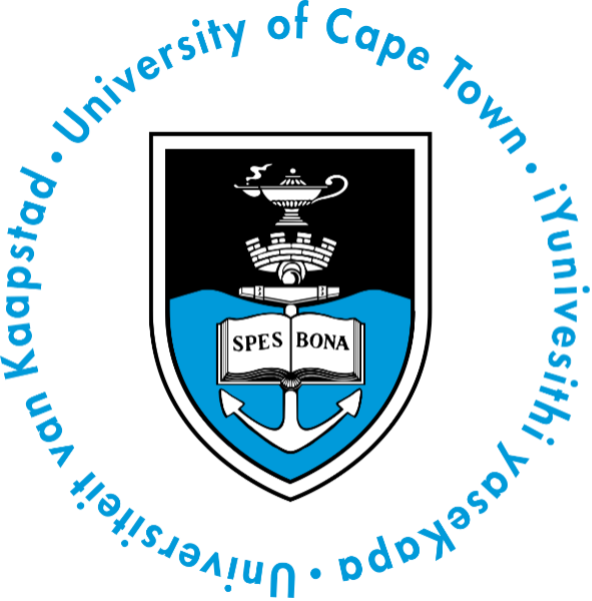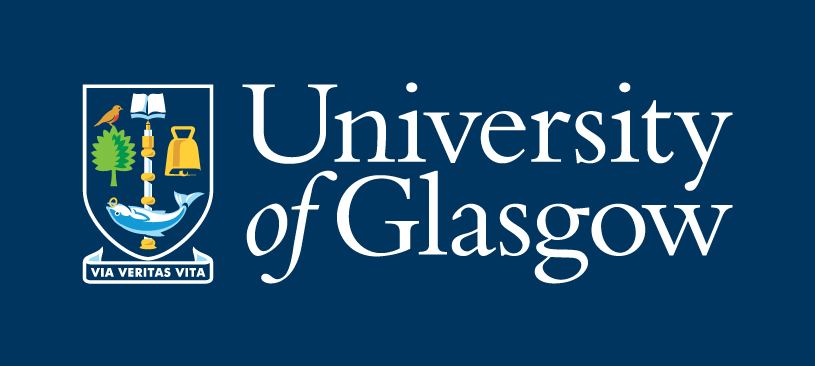Our Expert Team
International collaboration to ensure that SDG goals are met through research and practice.
Ph.D, Full Professor in Work and Organizational Psychology at the Department of Education, Languages, Intercultures, Literatures and Psychology (Psychology Section), University of Florence (Italy), where she is director of the two International Research and Intervention Laboratories: "Cross-Cultural Positive Psychology, Prevention, and Sustainability (CCrossPoPP&S)" and "Work and Organizational Psychology for Vocational Guidance, Career Counseling, Career Development, Talents and Healthy Organizations (WOProCCareerT&HO). She is the author of more than 200 peer-reviewed articles and of more than 100 books and book chapters. She was repeatedly invited to many international scientific conferences both as keynote speaker and as chair and discussant.
co-CEO and co-founder of APTMetrics, a global human resource consulting firm that designs sophisticated talent management solutions for corporations and market innovators. Dr. Scott has over 30 years of experience designing and implementing talent management and assessment systems across various global, high-stakes settings. For more than 25 years, he has directed the talent management and leadership assessment practice at APTMetrics. John has co-edited/co-authored six books and scores of chapters/articles in the field of organizational psychology. Dr. Scott is a Fellow of Divisions 5 and 14 of the American Psychological Association
Dr. Mahima Saxena is faculty in the Industrial-Organizational Psychology program at the University of Nebraska at Omaha. Dr. Saxena takes a person-centric focus in her research with expertise in a) worker health & well-being and b) humanitarian work psychology with a special focus on the informal economy, decent work, and sustainable livelihoods. Dr. Saxena's research has been funded by competitive internal and external grants and she has been felicitated by numerous teaching and research awards including the Distinguished Career SIOP Humanitarian Award, John F. Flanagan Award, and the SIOP Scholar award. She has held international visiting professorships and has dozens of peer-reviewed, invited & keynote conference presentations, multiple high impact lead scientific publications, including policy briefs on work & health in the informal economy. She is an Editorial Board Member of key journals in her field and serves in advisory capacity in the US and internationally for research hubs, think-tanks, and multilateral bodies on the psychology of the informal economy, sustainability, well-being, and decent work. Dr. Saxena earned her PhD in Industrial-Organizational Psychology from Purdue University, USA, MSc in Occupational Psychology from the University of London, UK as a Commonwealth Scholar, and Bachelor with honours from Delhi University, India as Gold-medalist.
President and co-founder of the Centre for Socio-Eco-Nomic Development (CSEND)- a 30-year old NGO based in Geneva and accredited by ECOSOC with special consultative status. She is an expert in Organisation Development & Institutional Learning and is active in policy debates, strategic analysis and designing of public administrative reforms. She consults UNDESA and UNOSD on the implementation of the SDG and other international organisations such as UNIDO, ILO, UNECE. She is also an active member of the World Summit of Information Society and author of academic publications on the SDGs (city, education, poverty, data and monitoring, and institutional capacity building), ageing and other topics related to the stakeholders approach to SDG implementation. Prof. Saner-Yiu was a Post-Doctoral Fellow at Columbia University, New York, 1983-1984 and has an Ed.D. in Psychology from Indiana University, USA.
Titular professor at Basle University (Economics & Management Department) and has taught at Sciences Po, Paris (Trade & Development of Low Income Development Countries of the Master of Public Management Programme) and Leuphana University of Lüneburg (Environmental Conflict Resolution and Negotiations of the Global Environmental and Sustainability Studies). He is co-founder of CSEND, a Geneva based NGRDO with ECOSOC accreditation with special consultative status. He co-chairs the academic network of the OECD Guidelines on Business and Human Rights, is member of the UN Task Force on Solidarity and Social Enterprises and expert in CSR quality standards. He holds a Ph.D. in social psychology from UGS University Ohio, represents the IAAP to UN Agencies based in Geneva. His research focuses on International Negotiations, Business Diplomacy, RBC (Responsible Business Conduct) instruments and the 2030 Agenda.
Stephen G. Atkins, M.Sc.Engnrng.(Industrial), Ph.D. (Industrial Psychology) has served for 14 years as the Research Coordinator for the business faculty at Otago Polytechnic of New Zealand. Over these years, he was solely responsible for the ethnocentrism and cross-cultural management curricular components of the B.App.Mgt. degree's compulsory core, often including a course in Organisational Behavior. For the last four years, his research in New Zealand has focused on HR technologies applied to the recruitment, selection, and cross-cultural training of volunteers for aid/disaster-relief work in harsh and austere settings. He has continued his research related to HR technologies for careers management from employer perspectives.
Professor in Organisational Psychology at the University of Cape Town, South Africa. Her experiences in corporate and community-based organizations have profoundly shaped her academic focus. She applies her discipline-specific expertise to alleviate poverty, reduce inequality, and create more humane workplaces. She holds the South African Research Chair Initiative's chair in Creation of Decent Work and Sustainable Livelihood, funded by the National Research Foundation which champions the perspective that the effect on human dignity should guide economic decisions. Her research aligns with the United Nations Sustainable Development Goals, the International Labour Organization's Decent Work Agenda and South Africa's National Development Plan. Her current research areas are living wages, personal initiative mindset training and the working conditions of low-income workers.
Dr. Ishbel McWha-Hermann is Associate Professor at the University of Edinburgh Business School. She studies social justice at work, particularly for marginalized and vulnerable workers, and in international work contexts. Current research examines fairness between national and international staff in international development contexts, the role of workplace policies and practices in that fairness, and the implications for poverty reduction initiatives. The other focuses on the psychological impact of living wages and decent work for workers, their families, organizations and society. She has undertaken consultancy and provided expert advice to numerous international organisations, including the United Nations, on creating reward policies and practices. Working internationally, she has advocated for the role of work and organizational psychology in addressing global grand challenges, such as poverty reduction, through contributing to the United Nations' Agenda for Sustainable Development. Ishbel leads the decent work strand of the EAWOP Impact Incubator, is a SIOP representative to the United Nations Economic and Social Council (ECOSOC), and sat on the British Psychological Society's Expert Reference Group on "poverty to flourishing".
Sakshi is the recipient of the Diana Award- the highest civilian award for humanitarian work across the globe. As the founder of Project LEAP, a social service project- committed to SDG4, Sakshi provides skill-based training to youth volunteers around the world. In 2018, Sakshi was awarded the world's first UNESCO Kindness Leader award. Currently, Sakshi works as an Sr. Strategy Consultant with Arup (London, UK) assessing ESG risks for an international clientele in the built-environment and renewable energy assets, working with public and private sector clients. She provides training for state-capacity building, working with government and multi-lateral or uni-lateral banks. Sakshi is a contributing author to the book 'Resilience in Modern Day Organisations' and has published various white papers and research on ESG, sustainability and emerging markets. Outside of Arup, Sakshi advises multiple AI-Based start-ups after three years of her own start-up experience in the tech industry.
Walter Reichman is an organizational psychologist currently a partner and vice president at OrgVitality a psychologically based management consulting firm. He is Emeritus Professor of Psychology at Baruch College and the Graduate Center of the City University of New York where he chaired the Psychology Department for 17 years. He is the main NGO representative to the Economic and Social Council of the United Nations from the International Association of Applied Psychology. He holds an M.A. and MBA from the City College of New York and an Ed.D. from Teachers College of Columbia University.
Believing that the global challenges we face cannot be addressed through single disciplinary approaches alone, Ingrid is an accomplished practitioner of sharing research and good practices, and fostering inter-disciplinary connections. She connects people, diverse ideas, multiple perspectives, and purpose to strengthen the connective tissue of organizations and communities. Ingrid is a Chartered Psychologist (HCPC registered), Qualified Executive Coach, a member of the European Association for Aviation Psychology, SIOP, EAWOP, Project S.A.F.E and Project SLATE. She has three decades of experience in industries and sectors from Finance to International Organizations (NATO). She received Practitioner of the Year Award (2010) by The British Psychological Society (BPS), Division of Occupational Psychology (DOP) and served as DOP Strategy Convenor and Conference Chair for a decade and was a member of the EAWOP Conference Organizing Committee. Ingrid co-founded European Military and Organizational Psychology (EMOP) to strengthen research and practice within a military context, has recently published on resilience and military leaders and is currently completing her PhD at KU Leuven on The Lonely General
Jeffrey Godbout is driven by the principle that change is inevitable and adaptability is fundamental to individual, team, and organizational success no matter the industry or sector. He has built a career around developing new business opportunities while also consulting to support organizations in hiring, training, and managing the needs of the workforce. Jeffrey was the Chair of the Global Organization for Humanitarian Work Psychology and continues to promote the development of Humanitarian Work Psychology (HWP). He currently teaches a course on HWP at the University of Baltimore and works to support the federal health workforce.
Jinia Mukerjee is currently the Head of the Department of Strategy and Entrepreneurship, and Associate Professor at MBS School of Business, France. She holds a PhD in Management Science from SKEMA Business School, and a Doctorate in Science from Aix Graduate School of Management, Aix-Marseille Université in France. For her Doctoral degree, she received the highest honor of the French Universities. She is also a trained clinical psychologist, from Macquarie University, Sydney, Australia. She was recently awarded the 'Hind Rattan Award', one of the highest Indian diasporic awards for outstanding services, achievements, and contributions to society.
CEO of OrgVitality, LLC. Jeff is credited with driving technological improvements now commonly seen in the survey industry, creating a business model focused on scientific rigor and business practicality while aiming for bottom-line results. Jeff has over 35 years of experience in the field of Industrial/Organizational Psychology, working in the areas of survey research, strategic planning, organizational development, selection and assessment, training and succession planning. He is a pioneer of new concepts such as Variance Optimization and the application of six-sigma principles to organizational culture. Jeff also developed the concept of Employee Confidence; specifically, how to measure it, its impact on performance, and how to utilize in order to improve organizational performance. He has experience in diverse settings, consulting with industry, financial services, retail, media, high technology, service companies, not-for-profits and government agencies on how to improve organizational performance. Based in New York, he has traveled and worked extensively in Europe, Latin America, and Asia-Pacific.
Prof. Rosalind H. Searle holds the chair in Human Resource Management and Organisational Psychology at the University of Glasgow's Adam Smith Business School, in Scotland, UK and founding director of the European Association of Work and Organizational Psychology's Impact Incubator, leading the translation of scientific research in work and organisational psychology for policymaker and practitioners. Her research focuses on organisational trust is wide ranging with attention on HRM and its role, trust and control, change processes, decent work, and counterproductive work behaviours. Prof. Searle is a Chartered Occupational Psychologist, and a Fellow of the Academy of Social Science, the British Psychological Society (BPS), the International Association of Applied Psychology (IAAP), the Royal Society of Arts, and an academic fellow of the Chartered Institute of Personal and Development (CIPD). She sits on the leadership team of the Living Wage Scotland, and is an advisor for a number of organisations on topics including sexual harassment and abuse prevention.
Stuart C. Carr is UNESCO Professor on Sustainable Livelihoods and Professor of Psychology in the School of Psychology at Massey University in New Zealand. His research, service, and teaching focus on transformations from precarious work to sustainable livelihoods, under the aegis of the UN Sustainable Development Goals.
Charles L. TCHAGNENO is Associate Professor in Work Psychology and Ergonomics at the University of Franche-Comté. His research interests focus on informal work, precarious work and decent work. He is particularly concerned with working conditions and workers in informal and precarious work environments and the impact on their health and safety at work. He is also interested in work relations in these contexts and the contextual and socio-cognitive determinants (such as social representations, cultural beliefs, cultural intelligence), as well as the impact of decent work and sustainable livelihoods among these workers.
Veronica Hopner is a Senior Lecturer in the School of Psychology at Massey University in New Zealand, and teaches an undergraduate course in the Psychology of Security, and a Postgraduate course in Occupational Health Psychology. Her research interest's focus on Unfree Work and Sustainable Livelihoods. She is interested in the intersections of economic, environmental and social sustainability for people both working and seeking work as well as within organisations. Veronica also conducts research in the field of violent extremism. She is beginning to explore how the changing world of work, especially through AI and automation plays out in political activism
Gustavo Martineli Massola is a professor at the Institute of Psychology at the University of São Paulo. He served as the vice-director of the Institute of Psychology at USP (2020-2023), was the head of the Department of Social and Work Psychology (2019-2020), coordinator of the Graduate Program in Social Psychology (2017-2019), and vice-president of the Graduate Commission at the Institute of Psychology (2018-2020). He was the editor-in-chief (2012-2020) of the Psicologia USP journal. He served on the board of the Brazilian Association of Environmental Psychology and People-Environment Relations (ABRAPA, 2019-2022)
David L. Blustein is a Professor and Golden Eagle Faculty Fellow in the Department of Counseling, Developmental, and Educational Psychology at Boston College. David is the author of The Psychology of Working, The Importance of Work in an Age of Uncertainty, and the co-editor of Rethinking Work. He has developed psychology of working theory, which is an inclusive and social justice-informed perspective of work. In addition, David has focused on unemployment, work-based interventions, decent work, interface of work and mental health, and relationships and work. He also has consulted with the International Labor Organization, OECD, and the United Nations Development Program
Ingo Matuschek (1999 PhD at Humboldt-University Berlin) is a professor at the University of Applied Sciences of the Federal Employment Agency (Schwerin location, Germany) specialising in Social Structure and Sociology of Work. His research focuses on the subjectification of work and the sustainability of work as well as on technical and organisational change in the world of work in relation to socio-political developments and changes in the German labour market. Most recently, he conducted research on the topics of home office, ageing workforces and sustainable work in member states oft he European Union and other european countries.
















.png)

